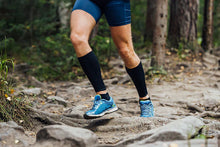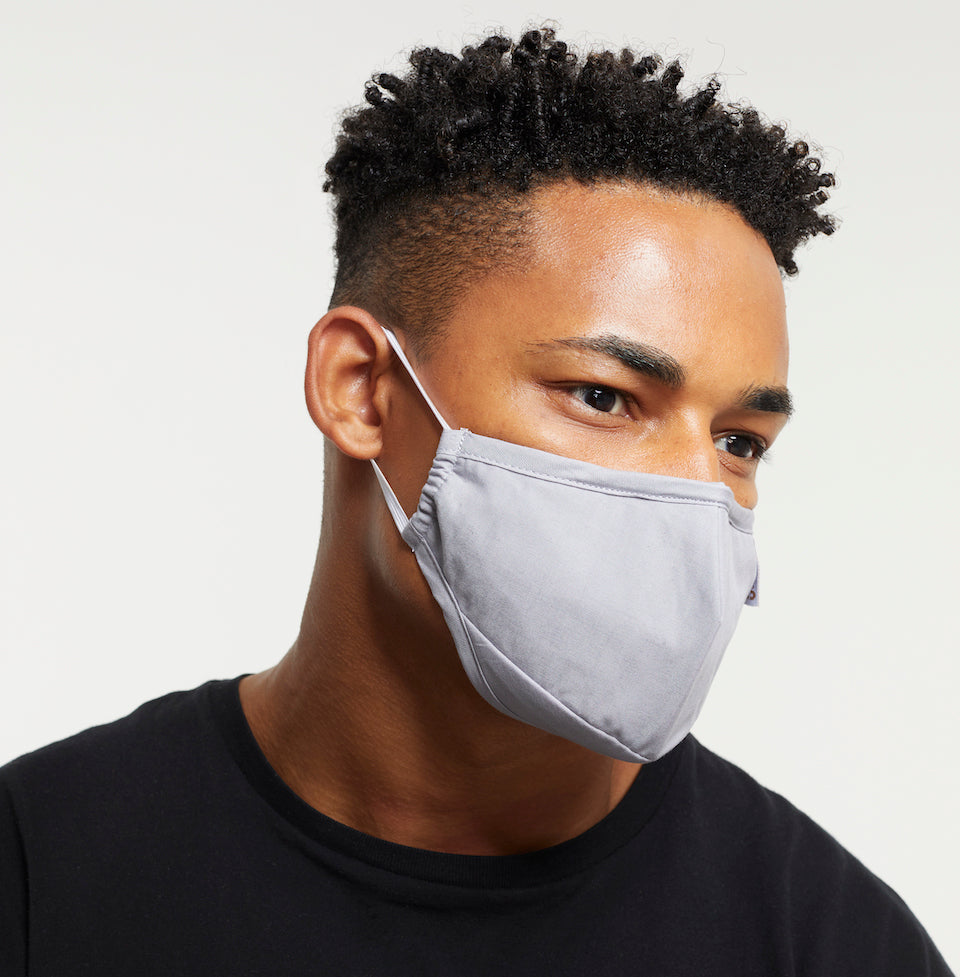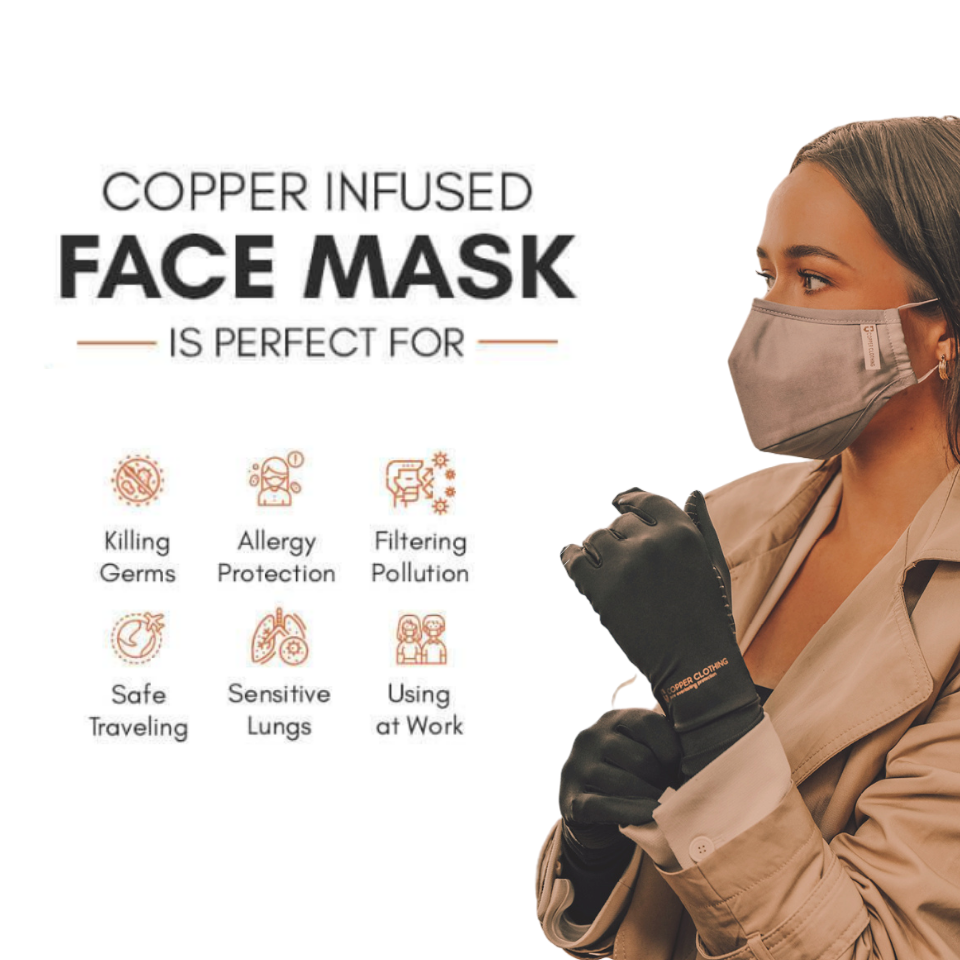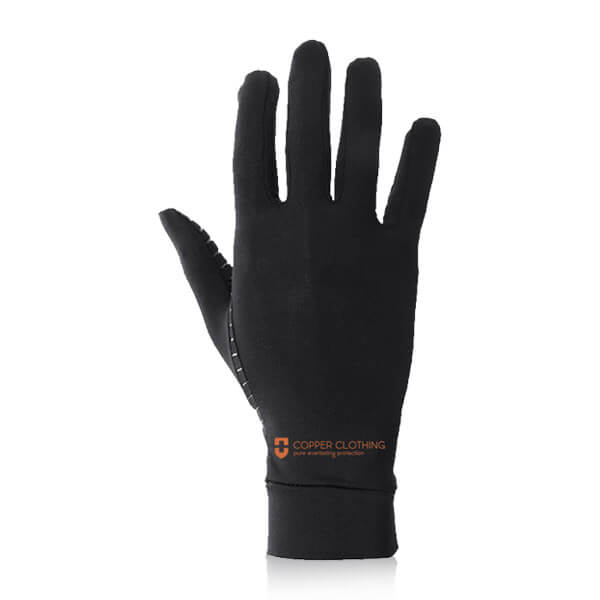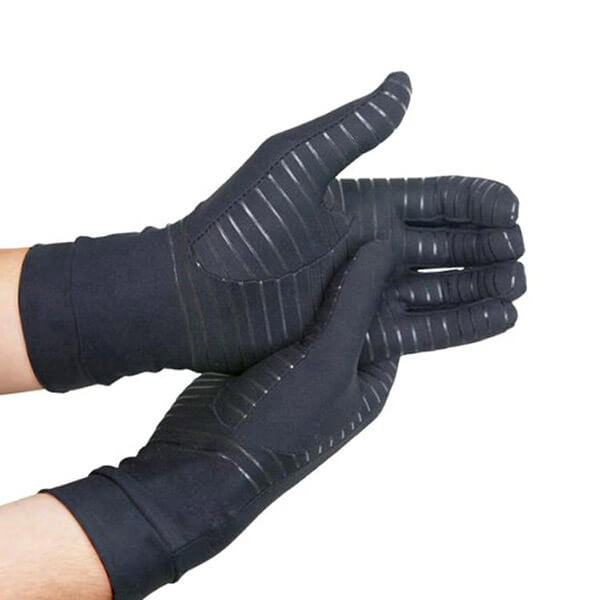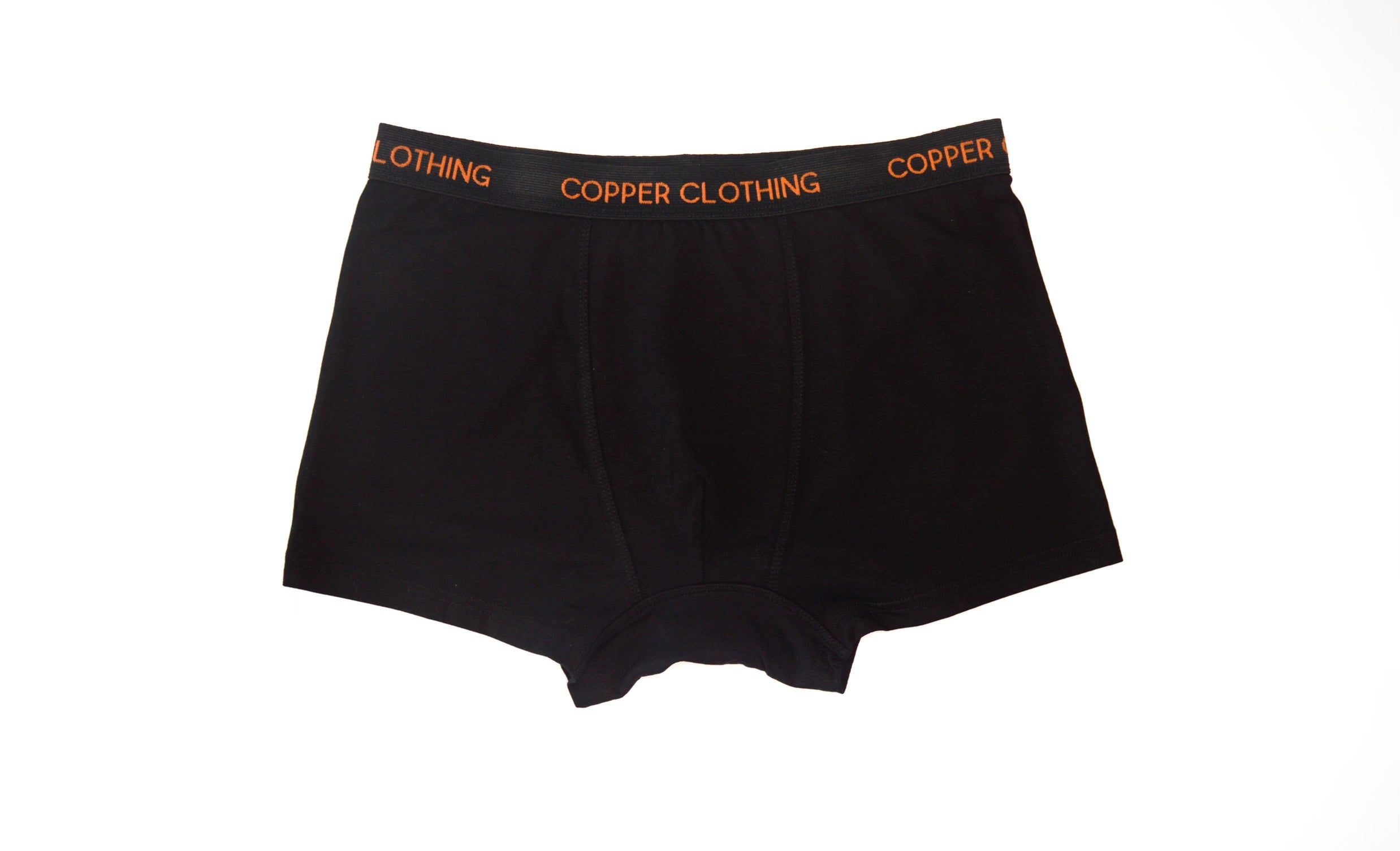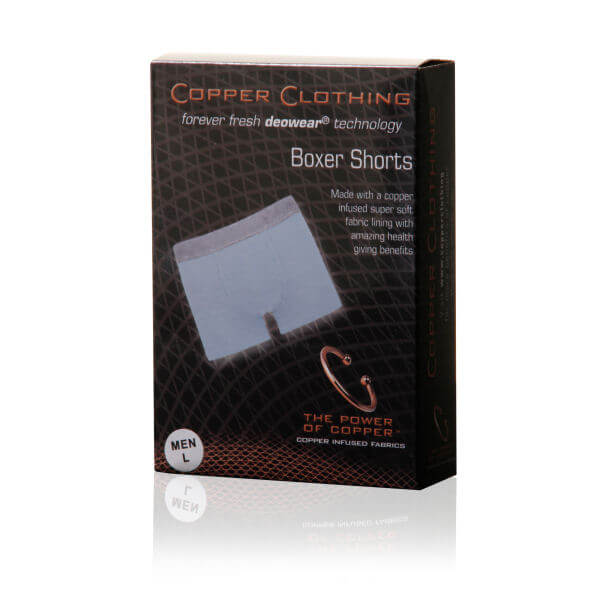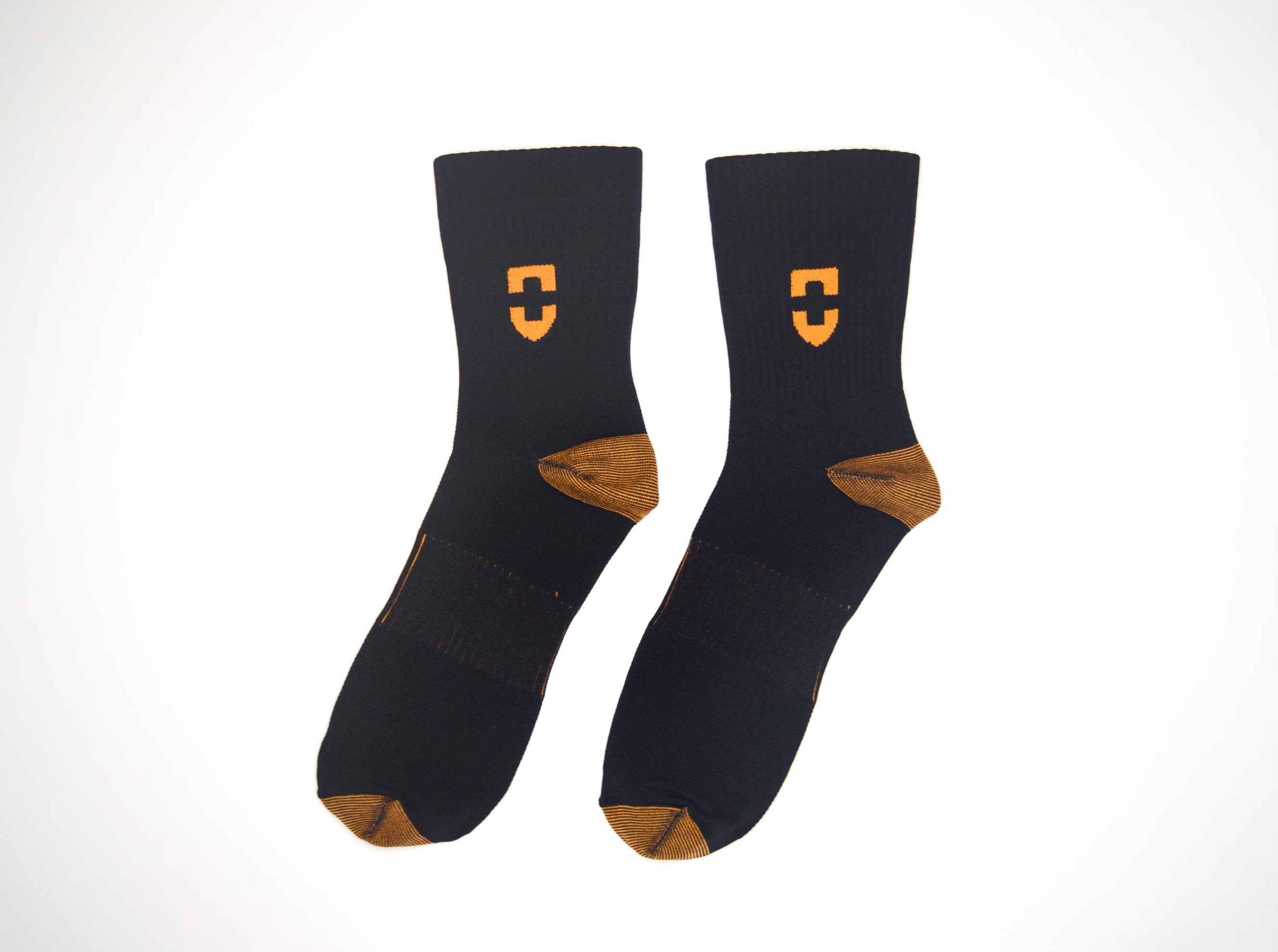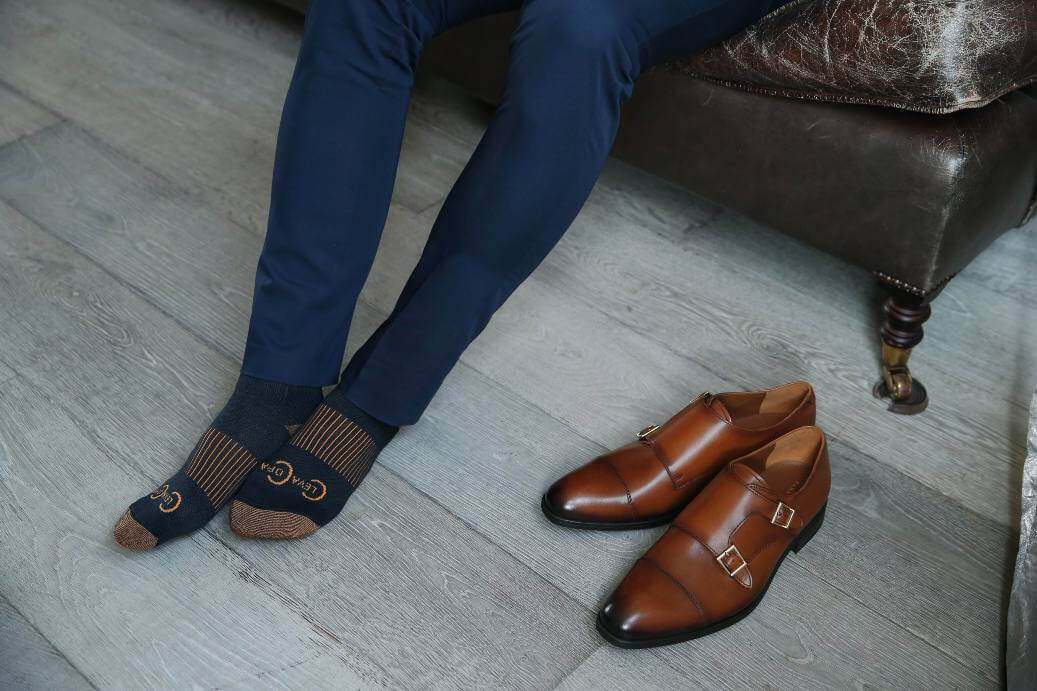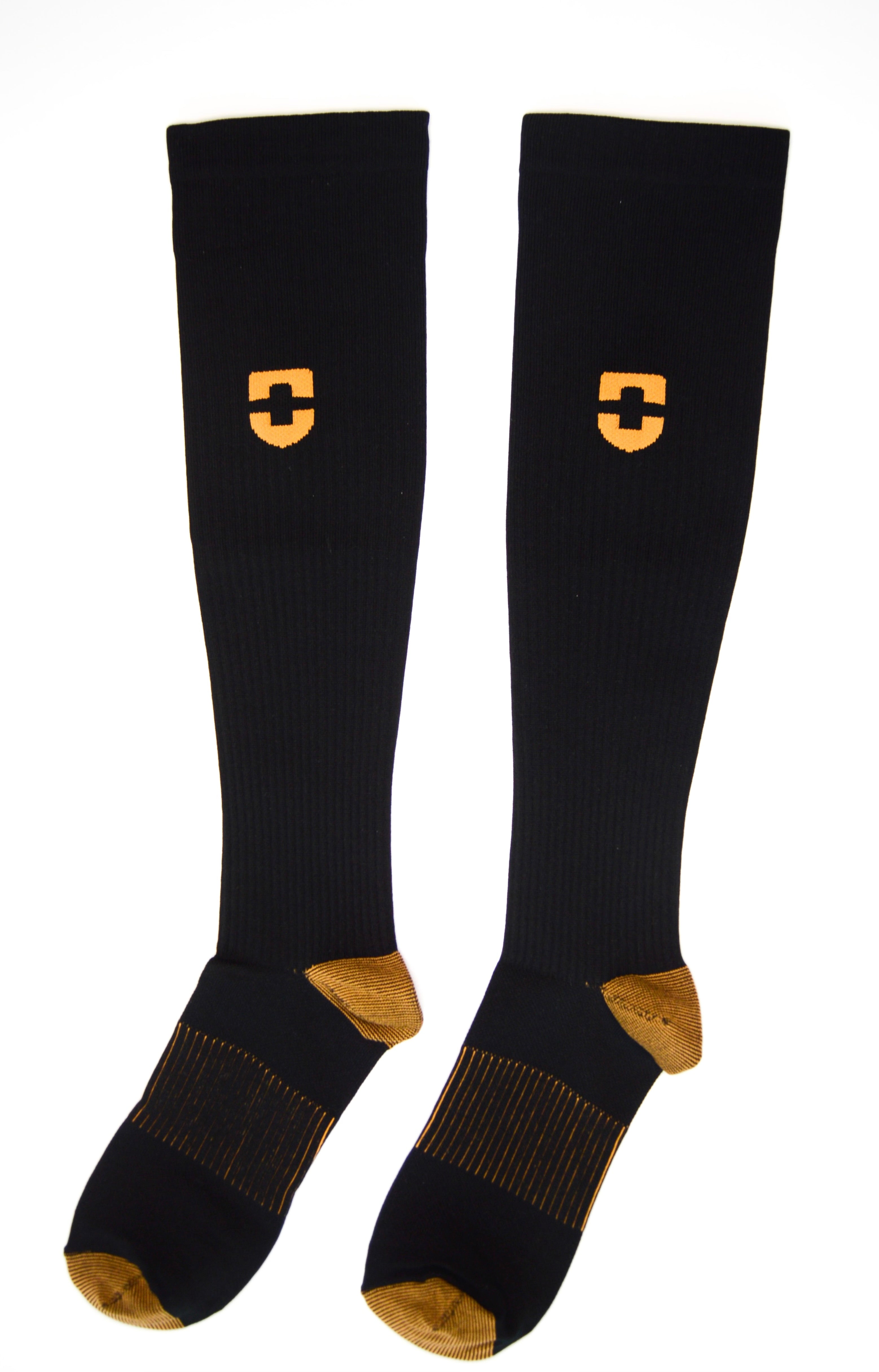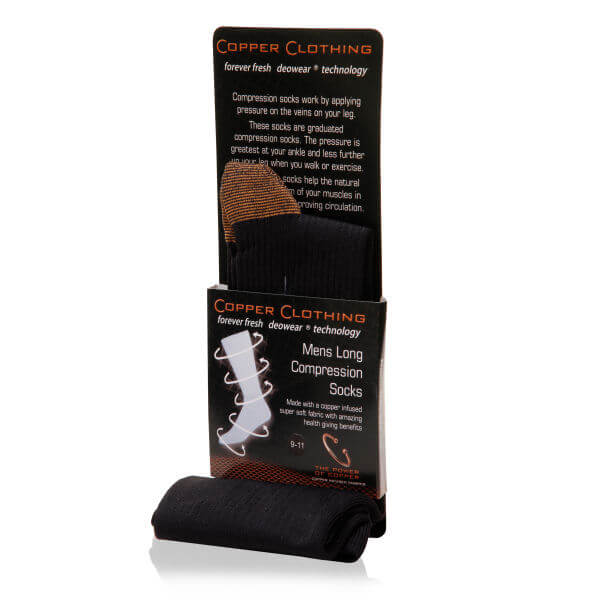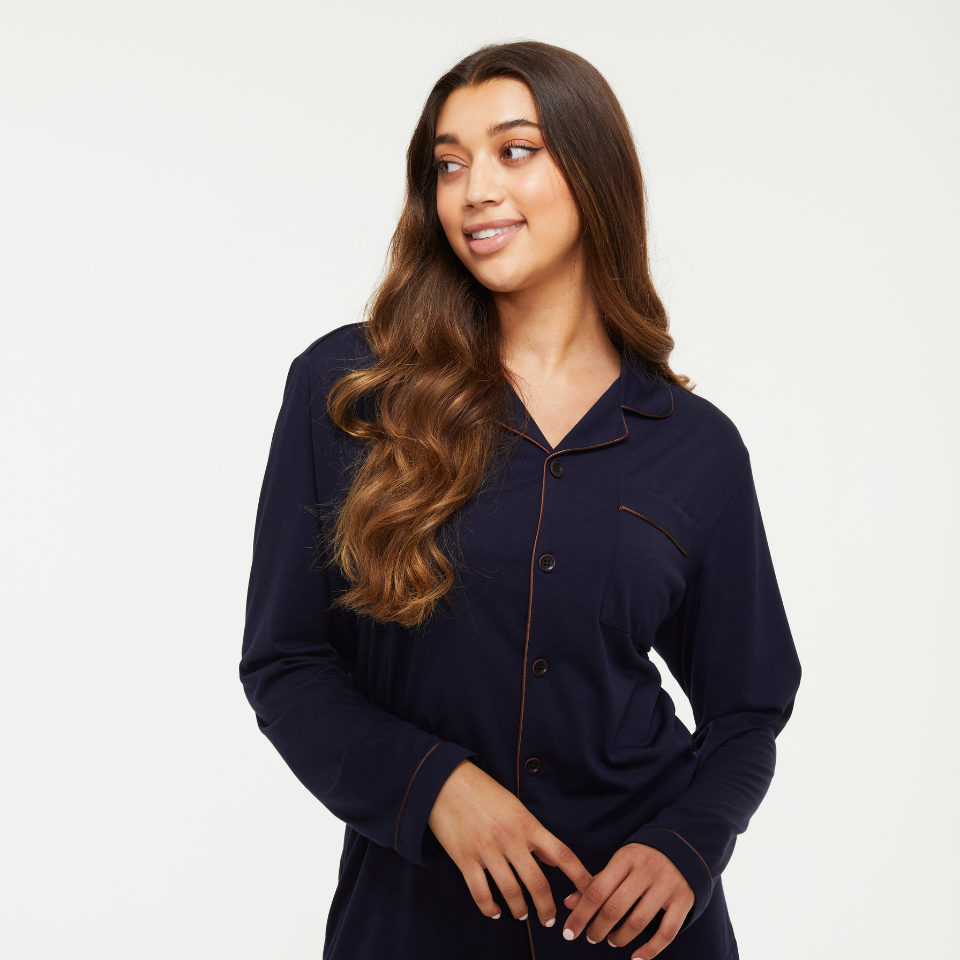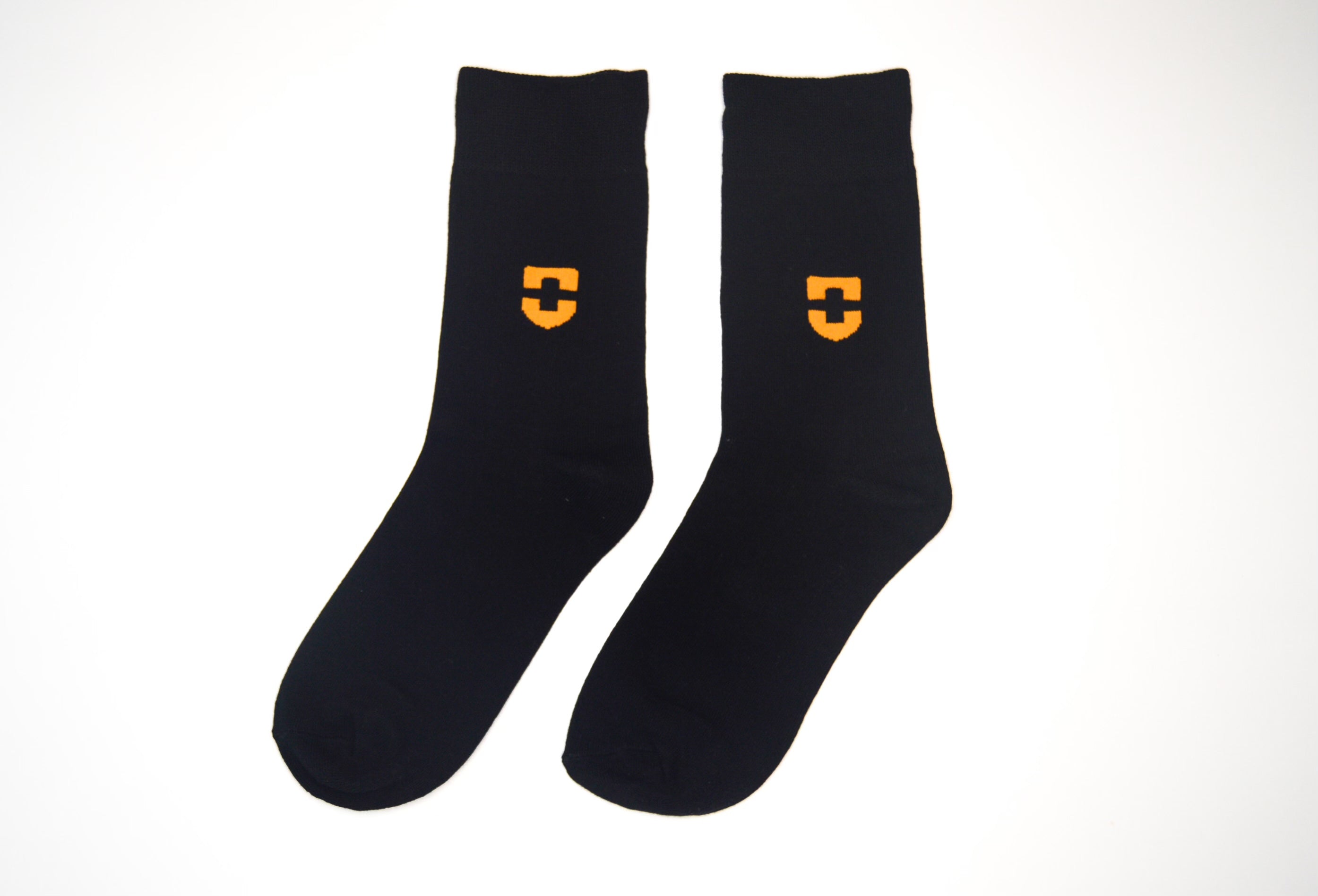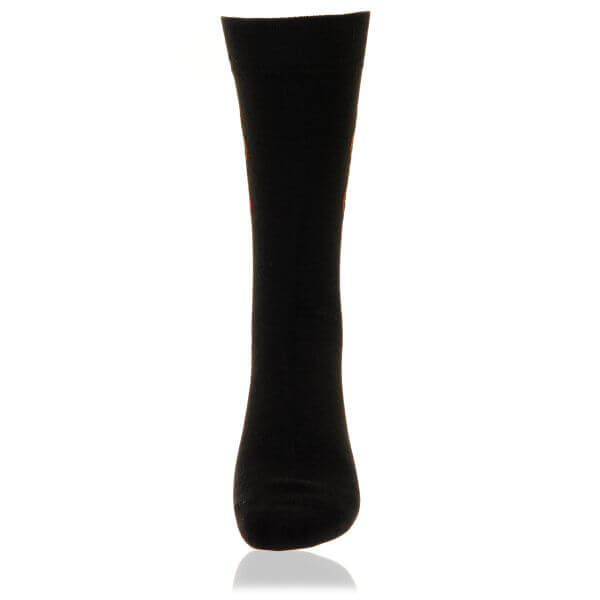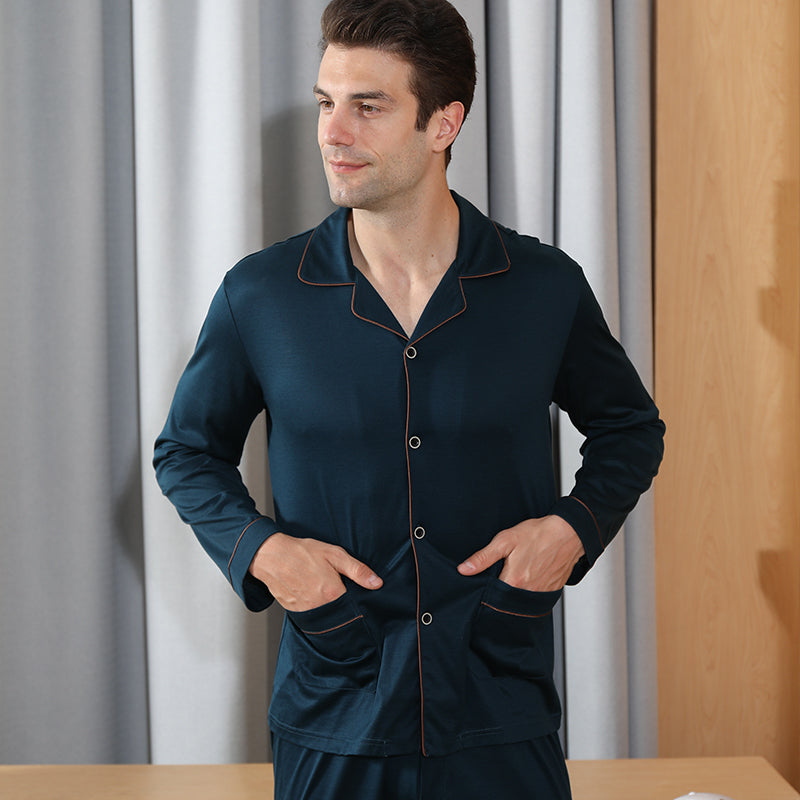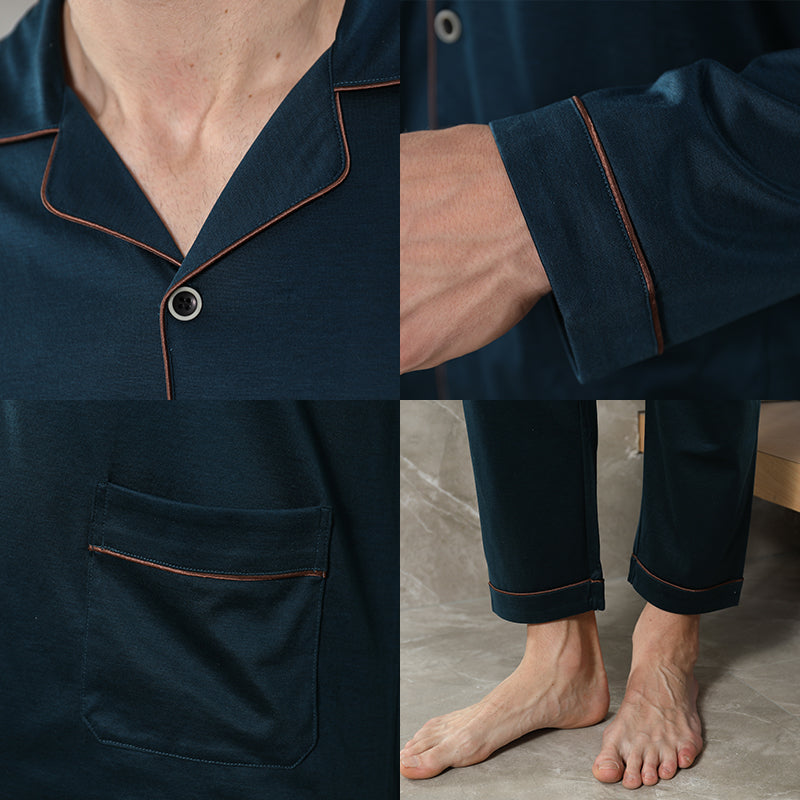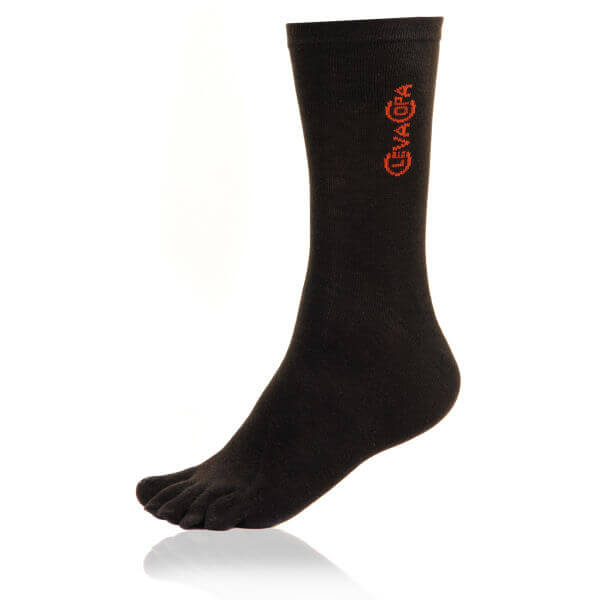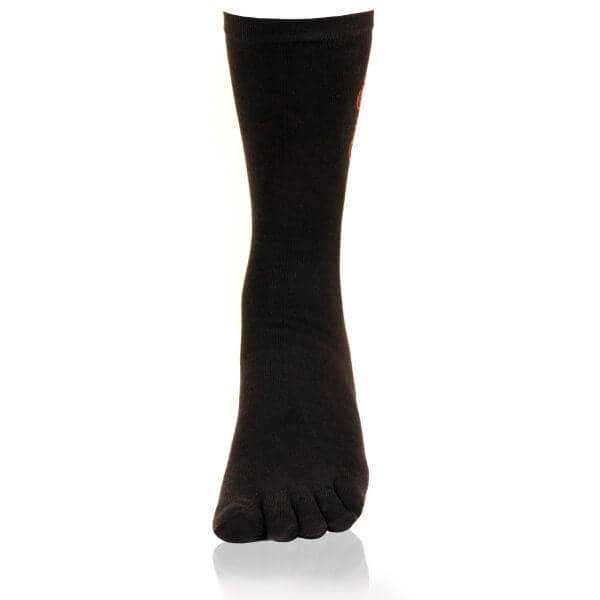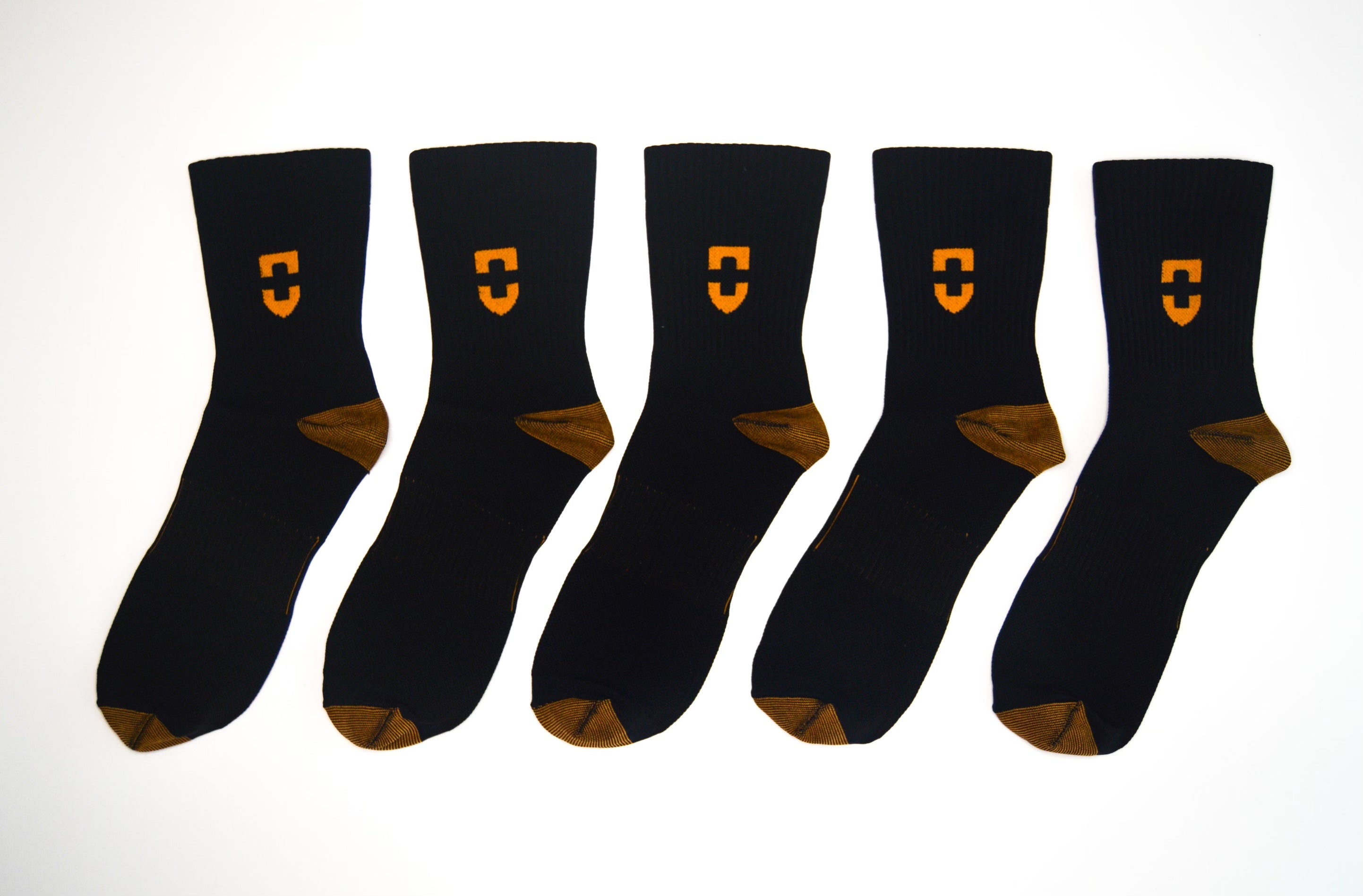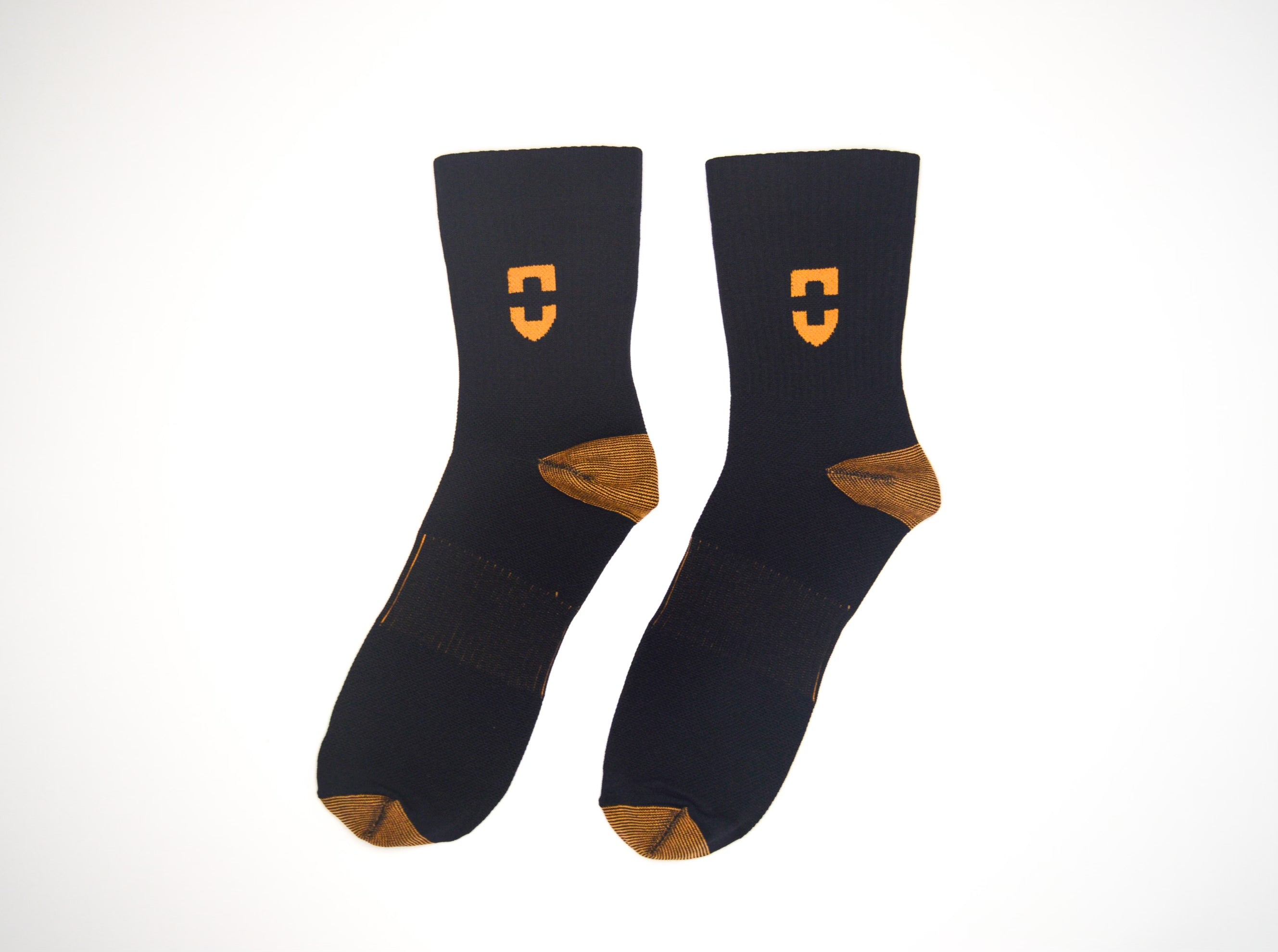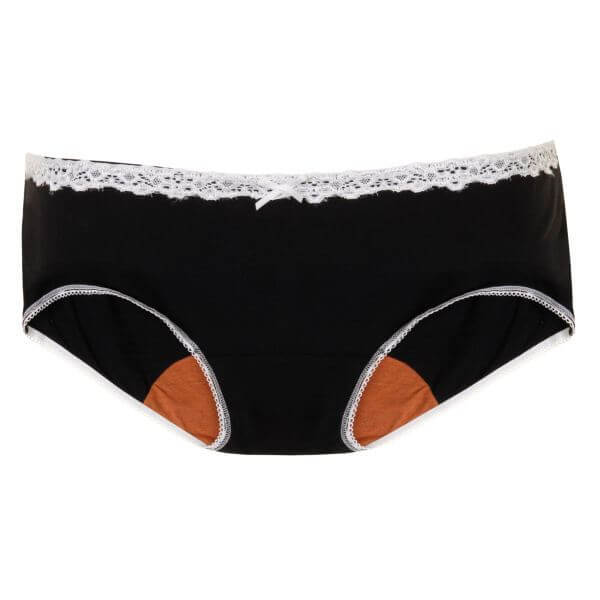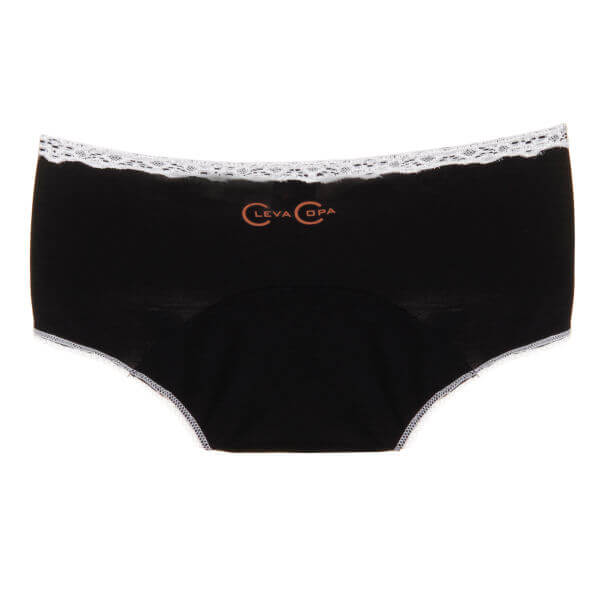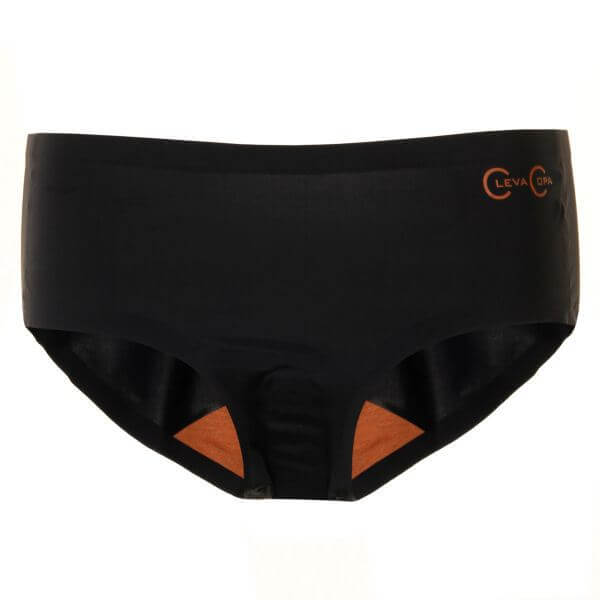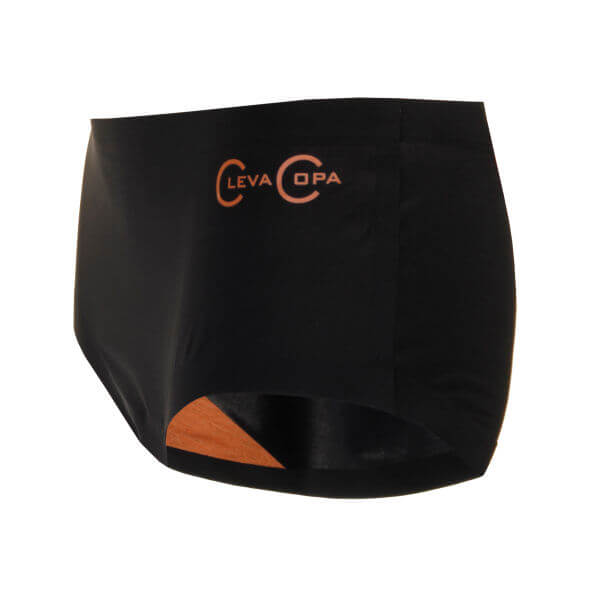Can You Sleep in Compression Socks? Safety, Benefits & Precautions!
Published
November 20 2021
Stay up to date on Copper Product releases & deals.
Subscribe to Our Monthly Newsletter for Deals on Product Delivered to Your Inbox!
Can you sleep in compression socks? Yes, you can! But it’s not necessary for most people. It is not even recommended for everyone! That said, whether you should sleep in compression socks or stockings depends on your individual health needs, comfort level, and any relevant medical advice.
This guide is designed to explain how compression socks work, their benefits, who should avoid overnight use, and provide tips for safe wearing.
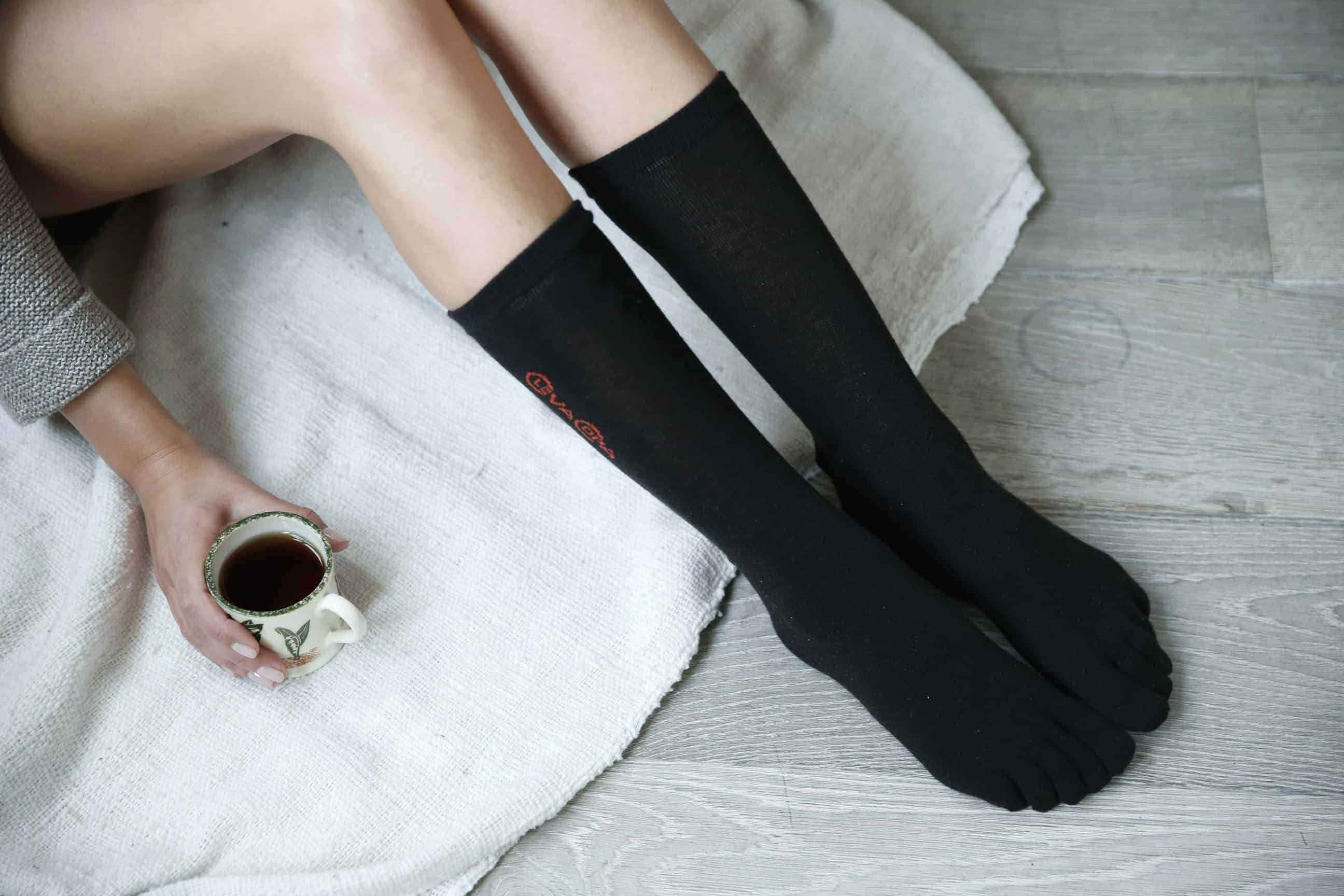
Should You Wear Compression Socks to Bed?
No, there is no need to wear compression stockings overnight if you don't have a venous disorder, swelling, or any other muscle issue. You should only wear them in the daytime to take care of your veins while you are active.
However, compression socks can prove to be a helpful hug to your legs while sleeping if you have any vein disease. But remember to ask your doctor for advice before sleeping with compression stockings.
It is crucial to consult your physician before wearing compression socks to bed at night. Also, remember that the pressure of compression socks depends on their type. The key is getting professional guidance to ensure you use the correct compression level and fit.
ultimate guide to copper compression socksHow Do Compression Socks Work?
Compression socks use graduated pressure to promote healthy blood flow. This pressure is tightest at the ankle and gradually looser toward the calf or thigh. It helps veins push blood upward toward the heart, reducing pooling in the lower legs.
Compression socks also prevent excess fluid from collecting in your tissues, which minimises swelling (oedema). For athletes, this gentle squeeze supports muscle recovery by enhancing oxygen delivery and flushing out metabolic waste after exercise.
What are the Advantages of Wearing Compression Socks Overnight?
While not necessary for everyone, wearing compression stockings overnight can provide several benefits for certain groups:
- Better Blood Circulation: Maintains blood flow in the legs, avoiding stagnation and promoting vascular health in general.
- Decreased Swelling: This helps folks who have oedema or are on their feet all day by limiting the accumulation of fluid in the calves, ankles, and feet.
- Quicker Muscle Recovery: Promotes muscle healing following strenuous exercise, long-distance walking, or other strenuous activities.
- Relief from Varicose Vein Discomfort: This medication helps lessen throbbing, heaviness, or pain associated with spider and varicose veins.
- Less Morning Leg Fatigue: Wakes up with legs that feel lighter and more energized.
- Support for Circulatory Issues: It may help with circulation issues associated with diabetes or mild venous insufficiency.
- Reduced Chance of Night Cramps: Compression socks help leg cramps at night, as they assist in reducing muscle cramps and spasms during sleep.
- Temperature Regulation: Wearing these socks can enhance comfort and circulation by keeping legs warm in colder weather.
- Post-Surgery Recovery Aid: When prescribed by a medical professional, they promote recovery and lower the danger of blood clots.
Note: Not everyone is a good candidate for sleeping in compression socks. Unless prescribed, people with specific medical conditions, including severe artery disease, should not use it overnight. So, always get your doctor's approval prior to prolonged wear.
When Should You Wear Compression Socks?
Compression socks aren’t just for athletes or people with medical conditions. They can help almost anyone dealing with leg fatigue, swelling, or poor circulation. They work by applying gentle pressure to your legs, encouraging blood flow back toward the heart, reducing swelling, and preventing discomfort.
Here are the most common situations when wearing compression socks can be especially beneficial:
-
While Working
If you have a desk job or spend long hours standing or sitting, your legs remain in one position for hours. For instance, if you are an office employee, cashier, teacher, or nurse, the blood flow in your legs can be hindered by up to 50% within an hour. This may lead to swelling and discomfort.
Wearing graduated compression socks during work helps maintain healthy circulation, reduces fatigue, and keeps your legs energized throughout the day.
-
During Long Travels
Sitting in the same position for more than 4 hours during a flight, car ride, or train journey increases your risk of Deep Vein Thrombosis (DVT). It is a dangerous blood clot that can travel to the lungs.
Compression socks improve circulation, helping prevent DVT, leg cramps, and swelling. They are a travel essential if you want to arrive at your destination feeling comfortable and ready to move.
-
While Exercising or Playing Sports
Athletes and fitness enthusiasts use compression socks to support muscles, ligaments, and tendons, reducing the risk of injury. They also help reduce post-workout soreness, boost performance by improving oxygen delivery, and speed up recovery.
Whether you are running, cycling, or hitting the gym, compression socks can give your legs that extra support to go the distance.
-
During Pregnancy
Pregnancy often comes with swollen feet and ankles, tired legs, spider veins, and sometimes, varicose veins due to increased blood volume and body weight. Compression socks can ease these symptoms by improving blood flow and reducing swelling.
Note: While short naps are fine, it’s generally not advised to wear compression socks to bed during pregnancy unless recommended by your healthcare provider.
-
Lounging or Napping
Relaxing on the couch, sitting in a waiting area, or enjoying the beach? You can safely wear compression socks during light activities or short naps. However, for overnight use, consult your doctor to ensure it’s suitable for your needs and compression level.
-
Managing Medical Conditions (Varicose Veins, DVT & More)
For people diagnosed with DVT, varicose veins, chronic venous insufficiency, or similar circulation issues, doctors often recommend wearing compression socks all day. They help relieve pain, reduce swelling, and prevent complications.
If night compression is required, your doctor may suggest anti-embolism stockings or low-compression socks (under 15 mmHg).
Who Should Avoid Sleeping in Compression Socks
While compression socks can be highly beneficial, they aren’t suitable for overnight wear in certain cases. You should avoid wearing compression socks to bed if you belong to the following groups:
-
Pregnant Women
Pregnant women may already experience increased pressure in their veins due to hormonal and physical changes. Wearing compression socks can help during the day, but overnight use should be monitored. Excessive pressure could cause discomfort or impact circulation if the socks are too tight.
-
Athletes
Athletes often use compression gear to speed recovery, but sleeping in them isn’t always necessary. Overnight wear may not add much benefit compared to daytime use and could cause overheating or skin irritation if worn too long.
-
Individuals With Peripheral Arterial Disease (PAD)
Those with PAD have narrowed arteries that reduce blood flow to the legs. Compression socks could worsen circulation in these cases, making overnight use risky without medical supervision.
FAQs
-
Why Don’t You Need to Wear Compression Socks to Bed?
When you lie down, your body no longer has to fight gravity to move blood from your legs to your heart. This means your circulation naturally improves without extra compression. That’s why most people don’t need overnight use of compression socks.
-
How Many Hours a Day Should You Wear Compression Stockings?
Most doctors suggest wearing compression socks during your waking hours, from morning until bedtime. The exact duration depends on your condition and your doctor’s recommendations.
Key Takeaways: Can You Sleep in Compression Socks?
- Most people don’t need to sleep wearing compression socks unless recommended by a doctor for specific conditions like venous disorders, swelling, or recovery from surgery.
- Compression socks work by applying graduated pressure, which is tightest at the ankle and looser toward the calf, to promote blood flow, reduce swelling, and support muscle recovery.
- Benefits of overnight wearing of compression socks may include improved circulation, reduced swelling, relief from varicose vein discomfort, quicker muscle recovery, less leg fatigue, and prevention of night cramps, for those medically advised to wear them.
- When to wear them during the day: While working long hours, standing or sitting, traveling for more than 4 hours, exercising, during pregnancy, lounging, or managing certain medical conditions.
- Avoid sleeping in compression socks if you are pregnant, an athlete without a medical need, or have peripheral arterial disease (PAD) unless under medical supervision.
- Always consult a healthcare professional to choose the right compression level and fit, and to ensure overnight use is safe for your situation.





